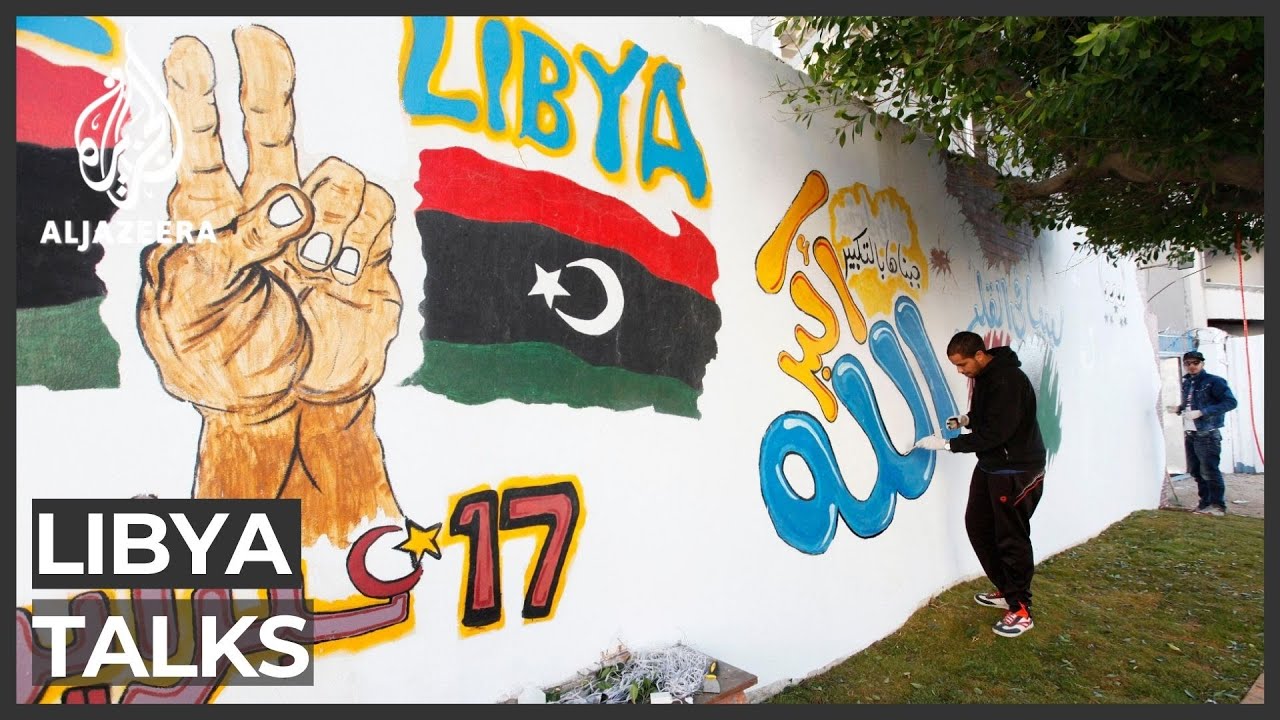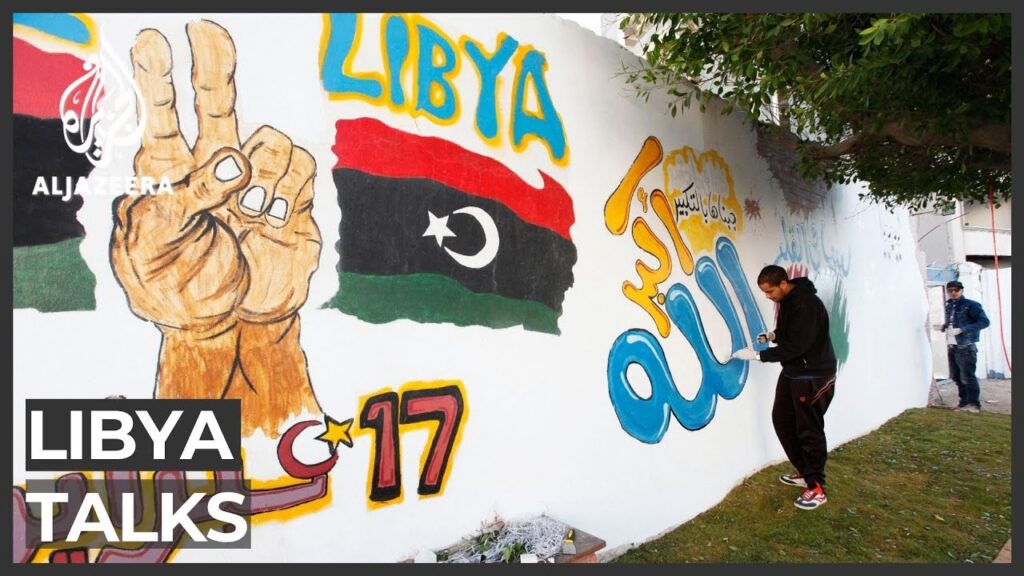
Senior Egyptian security officials have visited the Libyan capital Tripoli for the first time in years and held talks with officials from the internationally recognised Government of National Accord (GNA), the Libyan interior ministry said.
The visit on Sunday was the first for senior Egyptian officials to Tripoli since 2014 when the country entered a civil war between the UN-brokered GNA in Tripoli and a rival administration in the east allied with renegade military commander Khalifa Haftar.
Tripoli’s government is backed by Turkey while Haftar and his self-styled Libyan National Army (LNA) are backed by Russia, the United Arab Emirates and Egypt.
Libya descended into chaos after the NATO-backed overthrow of leader Muammar Gaddafi in 2011, and Egypt is concerned about instability in its neighbour and Turkey’s support for Tripoli’s forces.
The Egyptian delegation was headed by Ayman Badea, the deputy chief of the General Intelligence Service.
The delegation met Fathi Bashagha, the interior minister of the Tripoli-based government, as well as Emad Trabelsi, head of intelligence in western Libya.
Bashagha and Trabelsi discussed “ways to support the ceasefire agreement and discuss the outputs of the 5+5 committee” with the Egyptian delegation, the Libyan interior ministry said in a statement.
It was referring to a truce agreed on in late October between Libyan warring factions and the so-called 5+5 meetings, involving five senior officers appointed by each side.
Bashagha said on Twitter that the meeting was “fruitful and constructive” and described the relations with Cairo as “very important”.
The visit to western Libya came just more than a week after Egypt’s intelligence chief, Abbas Kamel, met in Benghazi with Haftar and the speaker of the Benghazi-based parliament, Aguila Saleh.
Bashagha seeks to lead an interim government that would rule Libya until an election set for next December.
He visited Cairo in November, part of efforts by the two countries to “fight the threat of terrorism and organised crime”, his office said at the time.
“At the top of the agenda is bringing ties back to normal between the two [Libyan] regions and also other issues relating to consular affairs,” said Al Jazeera’s Mahmoud Abdelwahed, reporting from Tripoli.
“On the other hand, there is anger here with many people in the government and political parties, troops on the ground are very angry. They have been surprised by this visit and say that they cannot expect any peace from Egypt since Cairo has been supporting all the military campaigns of Haftar over the past six years.”
The Egyptian delegation’s visit also came one day after Turkey’s Defence Minister Hulusi Akar, along with the military’s Chief of Staff Yasar Guler and other commanders, met officials in Tripoli.
Akar threatened to target Haftar’s forces if there were any attacks against Turkish forces in Libya.
He called Haftar and his supporters the “main problem” in Libya, an apparent reference to the UAE and Egypt.
Akar’s comments seemed to be in response to Haftar, who last week said he would target Turkish troops in Libya if Ankara extends its presence in the country. He said Turkey could “leave peacefully or to be driven out by force”.
Last week, Turkey’s parliament also extended a law for 18 months that allows the deployment of troops to Libya.
